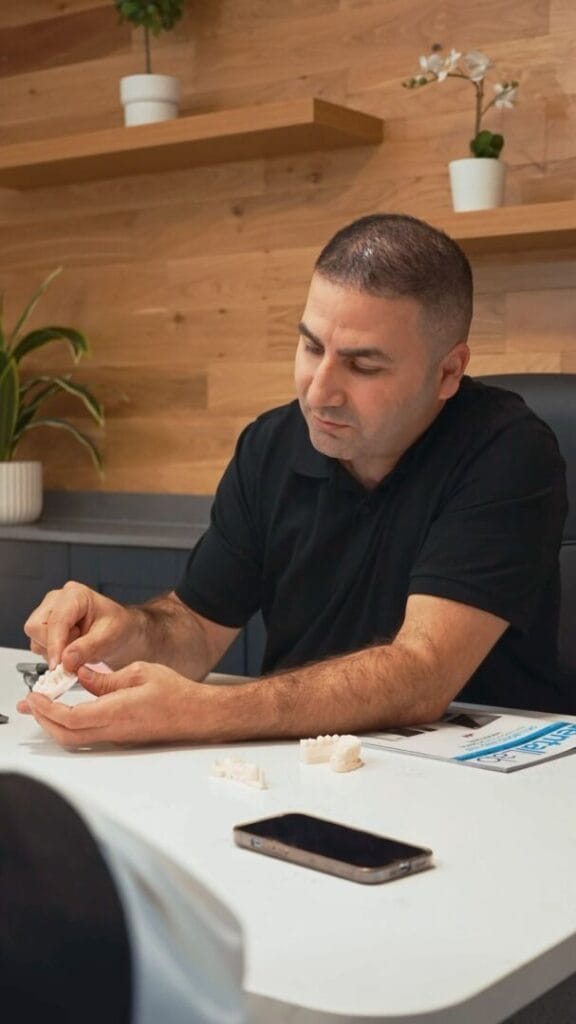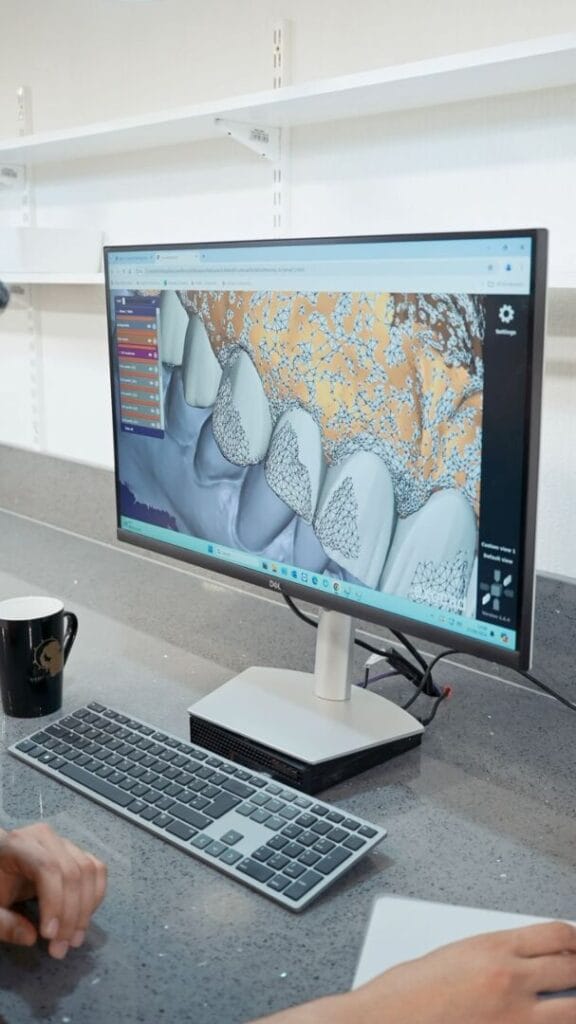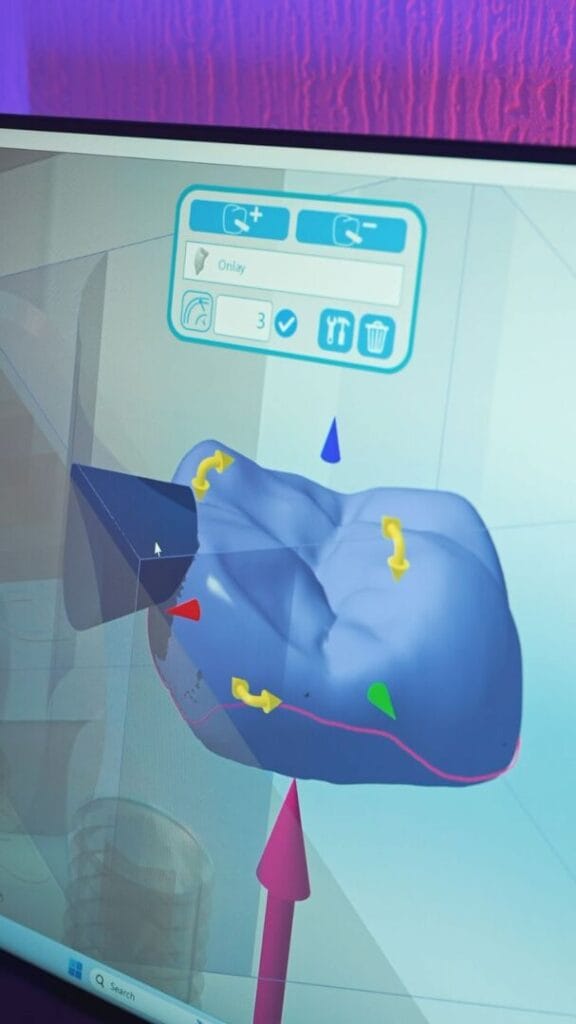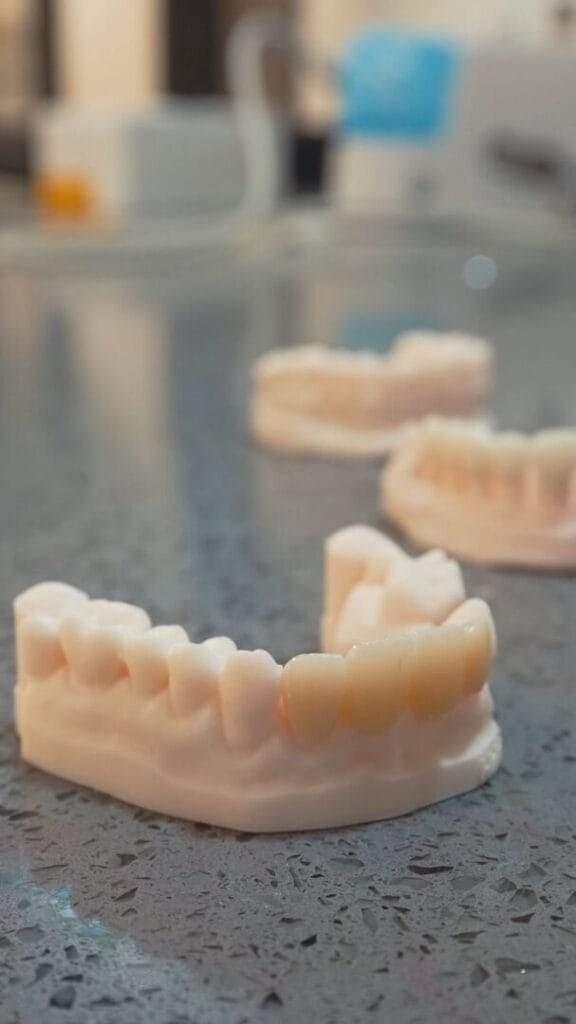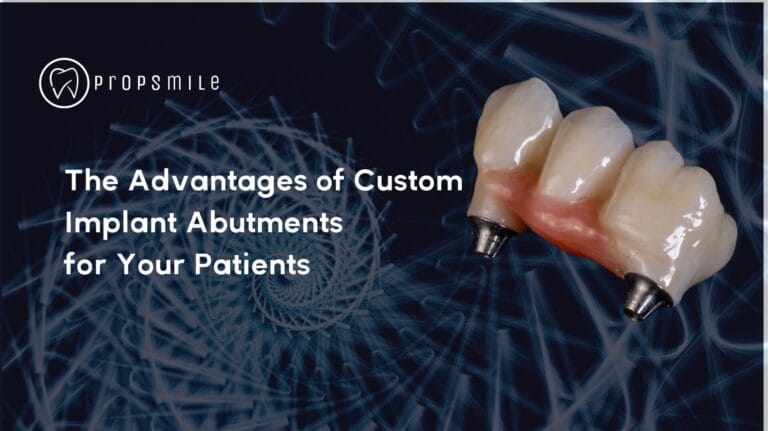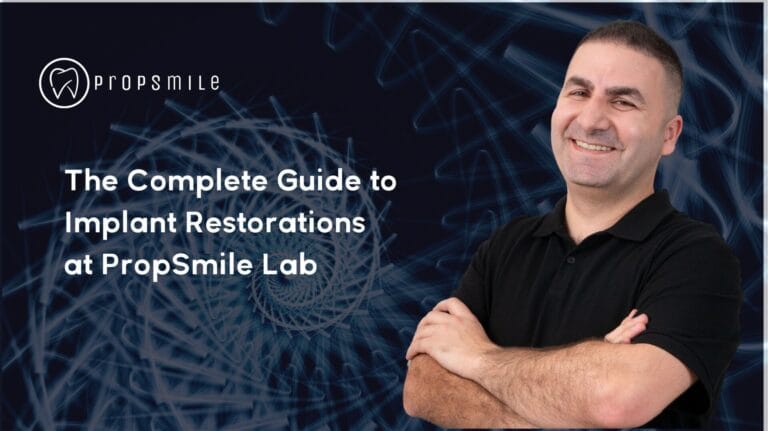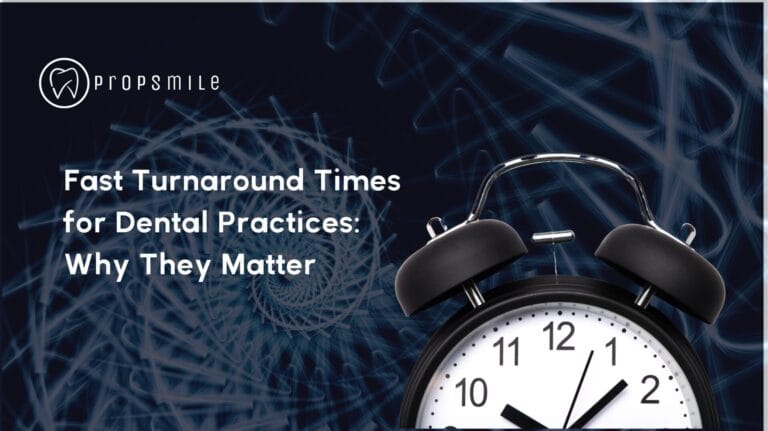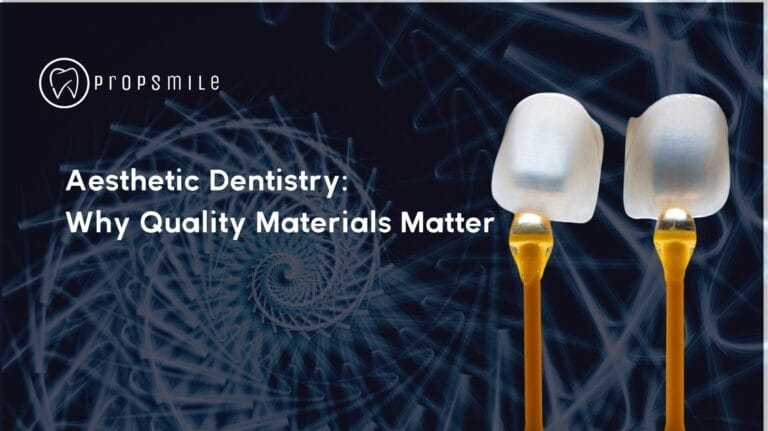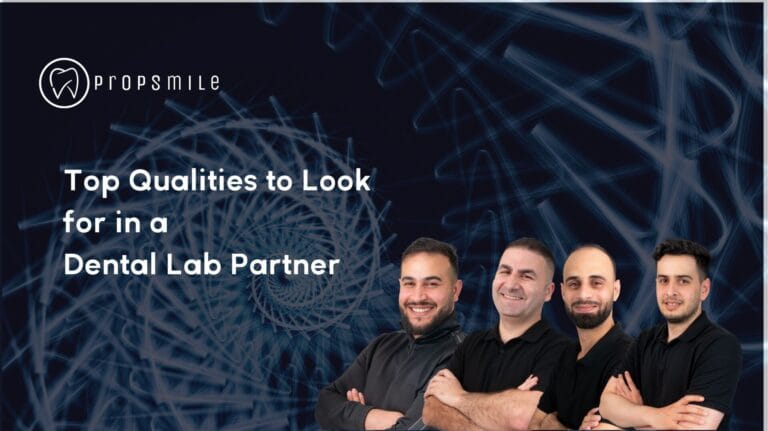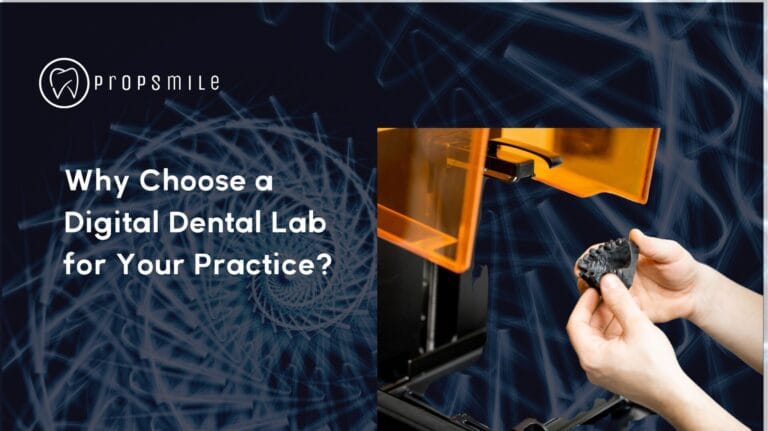Top Qualities to Look for in a Dental Lab Partner
Choosing the right dental lab partner is a pivotal decision for any dental practice. A reliable lab partner can not only ensure high-quality restorations but also support smooth workflows, timely patient care, and consistent results. Here’s a comprehensive look at the top qualities you should look for in a dental lab partner to achieve the best outcomes.
1. Reliability and Consistency
- Why Reliability Matters: A dependable dental lab can ensure that cases are handled promptly, without delays that disrupt schedules or patient satisfaction. When a lab consistently meets deadlines, you can plan procedures with confidence, knowing restorations will arrive on time.
- Consistency in Quality: Beyond timing, reliability also applies to the consistent quality of restorations. Working with a lab that meets high-quality standards across every order builds trust and supports long-term clinical success.
2. Advanced Technology and Skilled Technicians
- Cutting-Edge Equipment: A high-quality dental lab should invest in the latest technology, including CAD/CAM systems, 3D printers, and high-resolution scanners. These tools allow the lab to create precise, high-quality restorations that require minimal adjustments.
- Experienced Technicians: Technology alone is not enough; skilled technicians are essential for achieving the best results. A lab with certified dental technicians (CDTs) brings a level of expertise that ensures accuracy, aesthetics, and durability in each restoration.
3. Efficient Communication and Responsiveness
- Open Lines of Communication: A dental lab partner should be responsive and available to answer questions, address concerns, and provide updates. Real-time communication allows for quick adjustments and clarifications, ensuring that the end product meets your exact specifications.
- Collaborative Approach: Working with a lab that values collaboration means you can discuss cases in detail and receive professional input on materials, design, and other aspects. This partnership approach is especially helpful for complex cases that require precision.
4. Flexibility and Customization
- Adapting to Unique Needs: Dental cases vary widely, and a top-tier lab should be flexible enough to accommodate specific requests. Whether you need expedited services, custom shades, or unique materials, the right lab will go above and beyond to meet your needs.
- Personalized Solutions: An ideal lab partner will tailor its services to your practice’s specific needs, allowing you to offer your patients customized solutions that align with their unique dental requirements.
5. Commitment to Quality and Continuous Improvement
- Quality Control Protocols: Look for a lab that has established quality assurance processes in place to check every step of production. Quality checks at various stages ensure that each restoration meets high standards before it reaches your office.
- Continuous Learning and Innovation: A lab that stays updated on industry advancements and embraces new techniques demonstrates a commitment to excellence. This dedication to improvement ensures that your practice has access to the latest tools, materials, and methods.
Reliability and Turnaround Time
Reliability and turnaround time are essential qualities in a dental lab partner. Dentists rely on labs to produce accurate, high-quality restorations that arrive on schedule, minimizing disruptions to patient care and clinic operations.
1. The Impact of Turnaround Times on Patient Satisfaction
- Consistency in Treatment Schedules: Reliable turnaround times allow practices to maintain predictable schedules, reducing the likelihood of having to reschedule appointments due to delays in lab work.
- Handling Emergencies with Flexibility: The best dental labs understand that some cases require expedited attention and are able to adjust their workflow to accommodate urgent needs without compromising quality.
2. Reliability in Complex Cases
- Meeting the Demands of Advanced Procedures: For complex restorations, such as full-mouth rehabilitations or multi-unit prosthetics, consistency and precision are essential. A reliable lab will have protocols in place to ensure that even challenging cases are delivered on time.
- Experienced Technicians and Advanced Tools: Reliable labs employ skilled technicians who are adept in handling a range of restorations, supported by advanced tools and technology to achieve the desired results.
3. Real-World Example: PropSmile’s Approach to Turnaround and Reliability
- Workflow Efficiency at PropSmile: PropSmile has implemented a streamlined workflow that minimizes manual intervention and automates key stages of production, ensuring efficiency and accuracy.
- Dedicated Case Managers: PropSmile assigns case managers to each client, providing dedicated support to handle any last-minute requests and ensure smooth case progression from start to finish.
Quality and Technology Standards
A lab partner’s commitment to quality and technology standards is a key determinant of the success of a dental practice. By working with a lab that prioritizes state-of-the-art technology, high-quality materials, and skilled craftsmanship, practices can ensure that patients receive durable, aesthetically pleasing restorations.
1. Advanced Technologies and Their Impact on Quality
- Precision with CAD/CAM Technology: Computer-Aided Design and Manufacturing (CAD/CAM) systems offer unparalleled accuracy in designing and creating restorations, from single crowns to complex bridges. CAD/CAM technology reduces errors and ensures an ideal fit.
- High-Definition 3D Scanners: The use of 3D scanning technology ensures that impressions are highly accurate, capturing intricate details that translate into well-fitting restorations. Digital impressions also improve patient comfort by eliminating the need for physical impressions.
2. The Importance of Material Quality in Restorations
- Biocompatible and Aesthetic Materials: Top dental labs source biocompatible materials that are both durable and aesthetically appealing. High-quality zirconia, lithium disilicate, and advanced ceramics ensure that restorations not only last but also meet patient expectations for a natural look.
- Consistency in Material Sourcing: Reliable labs maintain strict quality control over material sourcing, ensuring that each restoration is made from high-quality, certified materials.
3. PropSmile’s Commitment to Quality Standards
- Quality Assurance at Every Step: PropSmile employs a multi-stage quality control process to ensure that every product meets the highest standards, with each stage overseen by a certified quality assurance technician.
- Continuous Upgrading of Equipment: PropSmile regularly updates its equipment to incorporate the latest advancements in dental technology, providing clients with the best tools for quality outcomes.
Communication and Collaboration
Effective communication and collaboration between a dental practice and its lab are crucial for achieving optimal results, especially for complex and aesthetic cases. Good communication ensures that each party understands the patient’s needs, preferences, and any specific requirements of the case.
1. Why Communication Matters in Dental Lab Partnerships
- Clear and Open Communication: Labs that prioritize open communication can avoid common issues, such as misunderstandings regarding case requirements or delivery timelines. This transparency helps to build trust and ensure mutual satisfaction.
- Personalized Customer Support: Top labs offer dedicated account managers who work directly with dental practices, offering personalized assistance for each case. This tailored support makes it easier for dentists to get answers quickly and to make adjustments as needed.
2. Real-Time Updates and Feedback Loops
- Utilizing Digital Communication Platforms: Labs that use secure digital platforms allow for real-time updates, enabling dentists to view case progress, receive digital previews, and provide feedback promptly.
- Frequent Check-Ins for Complex Cases: For detailed cases, such as full-arch restorations, regular check-ins between the lab and dentist help ensure that each stage meets the dentist’s expectations.
3. Case Study: PropSmile’s Communication Strategy
- Integrated Communication Tools: PropSmile offers an online portal where dentists can monitor their cases, view images, and directly communicate with lab technicians, ensuring a smooth and transparent workflow.
- Responsive Customer Service Team: PropSmile’s customer service team is highly responsive, addressing inquiries quickly and ensuring that any necessary adjustments are handled efficiently.
Key Certifications and Standards in Dental Laboratories
Certifications and industry standards are essential indicators of a lab’s commitment to quality, safety, and professionalism. Labs with the right certifications follow rigorous protocols that ensure consistent and reliable results.
1. Key Certifications to Look For
- ISO Certification: ISO certification ensures that a lab follows international standards for quality management, reducing risks and ensuring consistency in processes.
- CDT (Certified Dental Technician): Labs employing CDTs have highly skilled professionals who meet stringent training and competency standards.
2. Adherence to Health and Safety Regulations
- Compliance with OSHA Standards: Labs that follow Occupational Safety and Health Administration (OSHA) standards prioritize the health and safety of both employees and patients.
- HIPAA Compliance for Patient Data: Dental labs should comply with HIPAA (Health Insurance Portability and Accountability Act) regulations to protect patient privacy, especially when handling digital impressions and other patient-specific data.
3. PropSmile’s Certifications and Standards
- Commitment to Excellence: PropSmile holds several industry-recognized certifications, including ISO certification and CDT certifications for its technicians, showcasing its dedication to quality.
- Regular Audits and Quality Assessments: PropSmile conducts frequent internal audits to ensure compliance with industry standards and continuously improve its processes.
Technology and Innovation at PropSmile Lab
At PropSmile, technology and innovation are at the forefront of their service offerings. By leveraging cutting-edge tools and advanced manufacturing techniques, PropSmile sets itself apart as a lab that provides highly precise, efficient, and patient-centered solutions.
1. Investment in Advanced Equipment
- High-Definition 3D Printers and Scanners: PropSmile utilizes high-definition 3D printers and scanners, which allow for detailed, accurate restorations that meet the highest standards in fit and aesthetics.
- State-of-the-Art Milling Machines: The use of advanced milling machines ensures smooth, precise restorations, reducing the need for adjustments.
2. Integration of Digital Workflow Systems
- CAD/CAM Design Software: PropSmile employs CAD/CAM systems to design restorations with unmatched precision, creating custom fits that increase patient comfort and satisfaction.
- Automated Workflow Enhancements: Automation within PropSmile’s production line reduces the potential for human error, ensures consistency, and speeds up turnaround times.
3. Research and Development for Continuous Improvement
- Staying Ahead of Trends: PropSmile is committed to staying at the forefront of industry advancements, regularly investing in research and development to bring new solutions to its clients.
- Collaborating with Industry Leaders: By working closely with top dental material and technology providers, PropSmile ensures its clients benefit from the latest innovations in dental restoration technology.
Ensuring Consistency and Quality in Every Laboratory Process
Consistency and quality are paramount in dental lab services. A good lab partner should have procedures in place to maintain high standards across all cases.
1. Standardized Processes for Consistent Results
- Detailed Workflow Documentation: Top labs, like PropSmile, document each step of their workflow to ensure consistency, from material selection to final inspections.
- Multi-Level Quality Checks: Implementing several quality checks at different stages ensures that each product meets the necessary standards before reaching the dentist.
2. Dedicated Quality Assurance Teams
- Role of Quality Control Specialists: Quality control specialists play a critical role in ensuring each product’s quality. At PropSmile, a dedicated team conducts inspections to verify accuracy, durability, and aesthetics.
- Feedback Loops for Continuous Improvement: Quality assurance teams regularly review feedback from clients and adjust processes to address any recurring issues, continuously improving the quality of their output.
3. PropSmile’s Commitment to Excellence
- Regular Audits and Process Refinements: PropSmile conducts regular internal and external audits to ensure that its standards remain high, implementing improvements based on findings to enhance quality and consistency.
Additional Topics
The following additional topics provide a deeper understanding of what makes an ideal dental lab partner, focusing on practical considerations like cost-effectiveness, service flexibility, and environmental responsibility.
Cost-Effectiveness Without Compromising Quality
In the dental industry, balancing cost with quality is a crucial consideration. Patients expect high-quality restorations, yet dental practices also need to manage costs to stay competitive. Here’s how to identify a lab that offers affordable solutions without sacrificing excellence.
1. The Role of Automation in Cost Reduction
- Lower Labor Costs: By leveraging automation, digital labs can reduce manual labor requirements. Automated processes streamline production, cutting down on time and cost while maintaining high-quality standards.
- Efficient Use of Materials: Digital workflows allow labs to use materials efficiently, minimizing waste and lowering costs. For instance, CAD/CAM milling ensures that only the necessary amount of material is used, helping labs manage expenses without compromising quality.
2. Competitive Pricing with High-Quality Outcomes
- Comparing Price and Value: A cost-effective lab doesn’t just offer low prices—it provides significant value for the cost. The ideal lab partner should be transparent about pricing structures, ensuring there are no hidden fees or unexpected costs.
- Case Studies of Success: Look for labs that have a track record of offering quality restorations at competitive prices. Case studies or testimonials can give insight into the lab’s ability to provide cost-effective solutions without compromising on the quality that patients expect.
3. Flexible Payment Options and Volume Discounts
- Volume Discounts for High-Order Practices: Some labs offer discounts for larger orders, making it more affordable for high-volume practices. This type of pricing structure benefits practices that have a steady flow of cases and need a reliable lab partner for consistent results.
- Flexible Payment Plans: In addition to volume discounts, look for labs that offer payment flexibility. This can include options like monthly invoicing, financing for larger cases, or deferred payment plans for practices managing high case loads.
Customizability and Flexibility in Lab Services
A dental lab that offers flexible services can support a practice’s ability to provide personalized care. Customizability and flexibility in lab services are essential for practices that handle a variety of cases, from standard restorations to complex aesthetic procedures.
1. Importance of Customization in Dental Restorations
- Meeting Patient Expectations: Patients today have high expectations for personalized treatment, especially when it comes to aesthetic restorations. A flexible lab allows you to select custom shades, specific materials, or particular design elements that align with each patient’s unique needs.
- Case Complexity and Specialized Services: For complex cases—such as full-mouth rehabilitations or implant-supported restorations—flexibility in lab services is critical. A lab that can tailor its workflow for advanced cases offers significant support for practices specializing in intricate procedures.
2. Adaptability for Rush Cases and Special Requests
- Handling Urgent Cases: In dentistry, some cases require expedited service. Look for a lab partner that offers flexibility to prioritize urgent cases, ensuring patients receive their restorations promptly.
- Supporting Special Requests: Patients may have specific requirements or preferences, such as allergy considerations or a preference for a particular material. The best labs accommodate these requests, making adjustments as necessary to meet individual needs.
3. Case Study: Customized Solutions at PropSmile
- How PropSmile Adapts to Client Needs: PropSmile is known for its flexibility in handling special cases, offering customized solutions that meet the highest standards. For example, they provide detailed shade matching for aesthetic cases and use biocompatible materials for patients with sensitivities.
- Working with Your Practice’s Workflow: PropSmile’s flexible services include the ability to adjust to different practices’ workflows, making it easy for dental offices to integrate PropSmile’s services into their daily routines seamlessly.
Sustainability and Environmentally Friendly Practices
As environmental awareness grows, many dental practices are looking for lab partners that prioritize sustainability. Eco-friendly practices are increasingly important to patients, making sustainability a valuable consideration when choosing a dental lab partner.
1. Reducing Environmental Impact Through Material Management
- Eco-Friendly Material Sourcing: A sustainable lab uses materials that are responsibly sourced and considers the environmental impact of each restoration. This may include using recyclable packaging, biocompatible materials, and non-toxic dyes for color matching.
- Waste Minimization: Labs that adopt digital workflows can significantly reduce waste compared to traditional methods. For instance, CAD/CAM technology minimizes material waste by using only what is necessary, and digital impressions eliminate the need for disposable trays and impression materials.
2. Energy Efficiency and Reduced Carbon Footprint
- Energy-Efficient Equipment: Advanced dental labs invest in energy-efficient machinery and lighting to reduce their carbon footprint. High-efficiency 3D printers, milling machines, and LED lighting contribute to a more sustainable operation.
- Green Manufacturing Processes: Some labs have implemented green manufacturing practices, such as using renewable energy sources or recycling materials. Choosing a lab with these practices demonstrates a commitment to environmental responsibility, appealing to patients who value eco-conscious choices.
3. Long-Term Sustainability Goals
- Commitment to Continuous Improvement: The most sustainable labs go beyond initial efforts, setting long-term goals to improve their practices. This can include pledges to further reduce energy consumption, switch to entirely recyclable packaging, or adopt even more efficient machinery over time.
- Patient-Friendly Messaging on Sustainability: By partnering with a sustainable lab, practices can highlight their commitment to environmental stewardship in their patient communications. Many patients appreciate eco-conscious efforts, and choosing a green lab partner can enhance a practice’s reputation.


